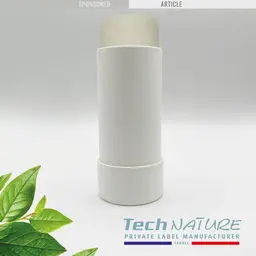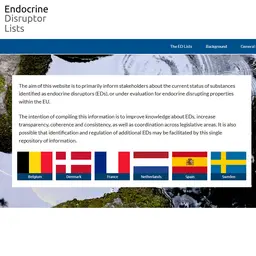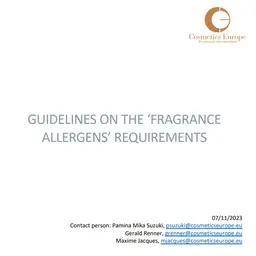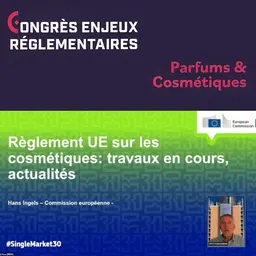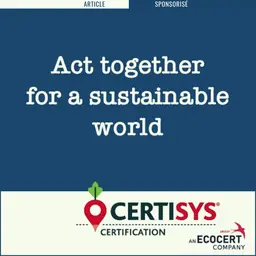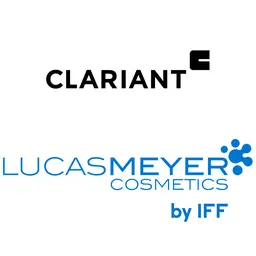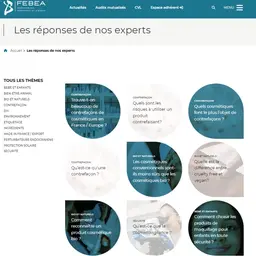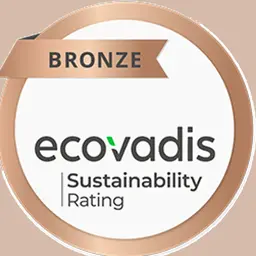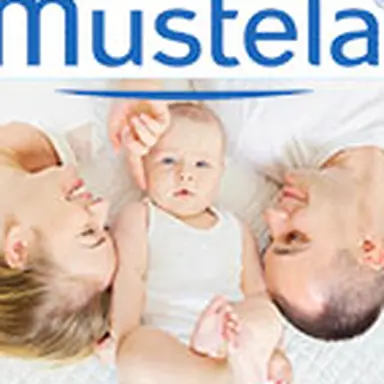
The baby cosmetics sector is no stranger to worrying controversies on product safety. Ingredients are regularly targeted as potentially hazardous, all sorts of advice can be found telling parents to avoid certain products… Within this stressful context, brands usually do not react much and let ‘whistle blowers’ make issues public. Mustela has decided to act, by directly talking to parents to help them sort the truth out from the lies – a new strategy presented at a press conference in the form of a round table last December 12.
‘Today, parents are well-informed, but a little lost given all the contradictory tips they can find everywhere. They want to do well, of course, so they look for perfect cosmetic formulas for their children. But the information they read and hear makes them anxious and all the moments supposed to be moments of pleasure and sharing with their children are spoilt due to the context,’ emphasized Céline Gerbier, Editing Director of the Paroles de mamans magazine as an introduction to the round table.
For example, 42% of parents modified their cosmetics buying habits for their children and eight mothers out of ten say they are worried because of the controversy around them.*
Why do we hear whistle blowers more often than the authorities’ and scientists’ answers?
A first answer came from sociologist Gérald Bronner, who has worked a lot on collective beliefs, reasoning mistakes, and their social consequences.
Information deregulation and the ‘cocktail party’ effect
To Gérald Bronner, there is a pretty well-known psychological effect called ‘cocktail party’: ‘When you are at a cocktail party,’ he explained, ‘there are many conversations you think you cannot hear, but in the hubbub, three types of information can hold your attention, even without you knowing it. Your brain can hear them, even if it does not process them. The first type has to do with the sphere of sexuality, the second concerns your first name or family name, if it is pronounced (we are all more or less self-centred), while the third has to do with threat and fear.’
As a matter of fact, in our modern society, we are immersed in a sort of ‘global cocktail party’: we are snowed under a flood of information, and only a few pieces of it draw our attention.
A flood of information
It should be known that more information has been spread since the early 2000s than since Gutenberg invented the printer. In 2005, 150 hexabits of data were produced – that is already huge. In 2010, eight times more were produced.
‘It has been observed that, in this gigantic racket, products of fear circulate much easier than scientific, documented proposals, and in a viral way. It is particularly true if the issue concerns children, who act as a catalysis for collective fears,’ Gérald Bronner indicated.
One of the explanations given by the sociologist is the current structure of the information market. The emergence of the Internet triggered its deregulation. Former ‘Guardians of the Threshold’ like journalists, university professors, doctors, association presidents, etc., who were considered legitimate when they spoke up in public, saw their influence much reduced over time. Little by little, a balance of power was established without any moderators, which mainly depends on the motivation of players.
‘These players are not necessarily ill-intentioned,’ Gérald Bronner emphasized. ‘Most often, they try to warn their fellow citizens about what might be possibly hazardous, but they usually do not do it methodically, in particular without submitting themselves to the scientific method. And they manage to spread information that especially attracts public attention.’
The inequitable balance of the brain confronted with fear
The sociologist further explained that within the context of information deregulation, these intellectual proposals, which have to do with the ideology of fear, reach the brain’s ordinary functions.
Sometimes, this outstanding tool, the most complex object in the world for us, with its million billions of connections, ‘systematically acts up,’ he said.
That is particularly true when we are confronted with uncertain situations, risks, or hazards: natural slopes in our minds make us intuitively overestimate low probabilities with a coefficient of 10 or 15 (this figure was experimentally measured). As a result, when there is a very low risk – zero risk does not exist – we tend to multiply its probabilities, in particular if it concerns the field of childhood.
‘For example, all drugs have costs and benefits, but our brain has a very inequitable balance: to compensate for 1 euro, we psychologically need 2.5 euros of benefits, which explains why we are so late when we try to fight against ideologies of fear with scientific weapons,’ he concluded.
The influence on the use of cosmetic products
Result: people get more and more worried, and the questions they have make false ideas emerge. This can be much more harmful than the use of the products at the origin of the problem.
Should a baby be given a bath?
40% of parents give a bath to their babies every day, 43% every other day, 16% once or twice a week.*
‘It is actually essential to wash your baby, because he may be constantly in contact with dust, animal hairs, microbes, and dirt,’ declared Dr Rémy Assathiany, paediatrician in the south of Paris.
Babies should be given a bath at least two to three times a week, according to this specialist, and even every day if he and the parent enjoy this moment. It is not only a hygiene ritual, it is also a moment of pleasure and privileged exchanges that are beneficial to the child’s development.
And it should be emphasized that water is not enough for a thorough wash, contrary to what we can often hear, ‘because most of the dirt cannot be “unstuck” and removed from the skin without an oily agent,’ explained Christine Lafforgue, dermo-pharmacologist at the Faculty of Pharmacy of Université Paris-Sud.
The product chosen for it should be gentle, not to damage the infant’s skin, which is still immature. You had also better avoid soap like Savon de Marseille, which also have a very alkaline and aggressive pH for their rather acid skin, even if they are natural products.
Prefer gentle cleansing bases, although they should be thoroughly rinsed off to prevent any skin irritation and drying out.
Should a baby be hydrated?
Parents also tend to use less and less products, only those that seem essential. 15% of them never hydrate their child’s skin, 25% do it rarely, 37% from time to time, and only 19% do it every day.
As a matter of fact, to Professor Pierre Vabres, Head of the Dermatology Service of the Dijon hospital in the east of France, hydration has no adverse effect, quite the contrary. It is absolutely essential: ‘When the skin is dry and can predispose to atopic dermatitis, it was shown that early and daily hydration has preventive effects and eczema develops to a lesser extent,’ he explained.
The moisturizing product application is also a special time, thanks to the massage. Bénédicte Thiriez, a nursery nurse in the city of Thionville, reiterated all its advantages in terms of wellness and the emotional bond between the parent and child.
Should we go organic?
Organic products may seem a safe investment: 44% of mothers verify the existence of an organic label when they choose cosmetics for their babies, according to a 2016 study by the Institut des mamans.
This solution is not necessarily ideal, as Christine Lafforgue reminded that if organic standard specifications do protect from certain substances like pesticides, these products are not necessarily the best for the skin, since they can prove allergenic or irritant.
Should we forget about perfume?
61% of mothers recognize the importance of the smell of the product they choose for their babies, but 57% declare they prefer products free from perfume.
To Professor Pierre Vabres, people should not be scared of perfume. Even if it can contain allergenic molecules, the frequency of allergies to perfuming substances in cosmetic products is extremely low in children.
Informing and reassuring: the Mustela strategy
The round table was an opportunity to remind that European cosmetics regulations are among the strictest and most protective in the world… even if the legislative time is always longer than the time it takes to spread an alarming message on a substance whose undesirable potential has been discovered.
Today, 64% of mothers say they pay attention to the composition of the cosmetic products they purchase for their babies**… but do they understand it perfectly well?
Given all these false ideas and recurring parent fears, Mustela developed an answer in two parts, both to renew parents’ trust in the products they offer and reassure them by giving them the right information.
Reasoned naturalness
Franck Menu, Cosmetic Innovation & Development Director of Mustela, emphasized the fact that the brand has set up a quality and safety charter that is even more demanding than the rules applicable to all cosmetic products, based on reasoned naturalness, the rigorous selection of the ingredients used, an eviction-based policy for many substances (allergenic, irritant, drying or potentially hazardous substances) added to a red list, as well as the validation of formulas by independent expert toxicologists to ensure their safety.
But these arguments pertain to the sphere of scientific messages… and, according to Gérald Bronner, although they are definitely relevant, it seems they can hardly convince people, given the flood of fear information. How can we ask parents to blindly trust manufacturers today?
A platform of innovations
Mustela has decided to directly aim at parents, by offering them services and information and help them sort the truth out from the lies, answer their questions, alleviate their concerns, and make the voice of reason heard despite the stressful context.
Vincent Mouilleseaux, Corporate Dermocosmetics Director of Mustela, described this strategy, which will be materialized by a new column on the brand’s website.
Answers to questions and information supported by experts with various profiles (dermatologists, allergologists, pharmacologists, child psychiatrists, midwives) will be offered through four themes:
• Gestures and skincare rituals
• Skin problems (atopy, irritations, cradle cap…)
• Formula ingredients and safety
• Products pregnant women can use
All this will be presented using a simple, easily understandable and accessible language, together with research tools, so that parents can easily find answers to their questions.
The new platform will be launched in February 2018.
In conclusion, Céline Gerbier reiterated the ‘importance of reviving parents’ serenity, so they can live a better experience as parents.’
The task is not easy: as Gérald Bronner emphasized, all around the world, there is a generalized increased mistrust towards institutional bodies, in particular in France, one of the only countries in the world to have constitutionalized the precautionary principle.
To the sociologist, this concept may be dangerous, since it means we focus more on the costs of our actions than those of our inaction.
‘We focus more on the possible consequences of the use of a product than the consequences of its non-use,’ he emphasized.
It all relates to the benefit/risk issue, and maybe it is the essential message to pass on to parents: we should recommend them to wonder what will happen if they do not wash their babies, rather than worry about what might possibly happen if they do with such or such product…
*Study conducted for the Institut des mamans among 300 mothers of children aged 0 to 3 in September 2017
** Survey conducted by IFOP among 514 mothers of children under 2 in November 2015

